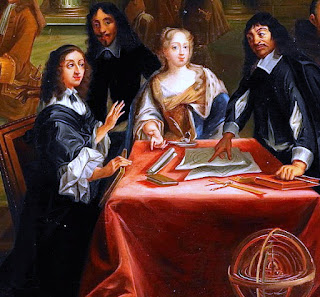As I read this chapter again, which
treats of the Seventeenth and Eighteenth Centuries, it seemed to me more like a
commentary on the last part on the Twentieth Century and the first part of the
Twenty-first, yet the book was published in 1929. Again, the comment of
Alexandr Solzhenitsyn about the Renaissance, made during his 1978 Harvard
address came to mind: “ This new way of thinking, which had imposed on us its
guidance, did not admit the intrinsic evil in man, nor did it see any higher
task than the attainment of happiness on earth. It based modern Western
civilization on the dangerous trend to worship man and his material needs.”
The new humanism of the Renaissance
focused on what the human person could do, not upon what he was called to be.
Human beings could master nature, but were not now called to become more human.
Rather, the more that a person can do or experience, the ‘better’ he or she
will be.
Morality had been overtaken by
observation and experiment; modern science was just beginning. The mathematical
structure of reality was the new metaphysics.
The corollary of this was than man lost
his central place in the Universe. He was no longer the link between the
spiritual and material order, but had now embarked on an independent project in
which his truth and goodness were left behind. He had become a by-product of a
vast mechanical order which the new form of science had just revealed.
Cartesian philosophy well expressed the
dualism of matter and spirit. Secular culture and religious tradition came
apart and, without the other, neither could fully develop. Even so, religious
ideas remained dominant in society, represented by the Puritans, the
Jansenists, St Teresa and St Vincent de Paul.
In England, the 1688 revolution ironed
out religious differences by abandoning toleration, and enforcing the Test Act
and the Penal Laws.
The effect of this was the suppression
of the religious foundation of society and the emergence of a progressive,
secular State. Even so, the good elements of the new culture were drawn from
the old Christian culture; the new culture was an abstraction of Christianity.
The progress and development of people
took the place which Christ Jesus had formally held in his work of the
Redemption. Human effort was now the key; a golden age lay ahead.
The belief in progress was the religion
of the age, but the disappointment that followed from the destruction and
terror of the French Revolution, divided Europe again into two camps, one
Liberal and the other Catholic.
As the Age continued, the Idea of Progress
was seen as the great hope; a ‘new Christianity’, which would restore unity to
Europe. An ideal, but without a genuine human basis.















No comments:
Post a Comment